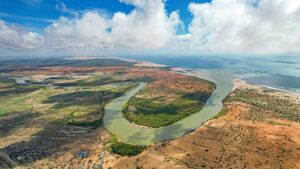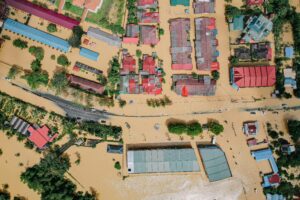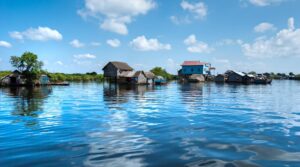PERSPECTIVES

Resilient water management is crucial to achieving the objectives of the UNFCCC’s 2015 Paris Climate Agreement. It is encouraging that so many of the Nationally Determined Contributions from the parties to the agreement explicitly include water but much more needs to be done. This policy brief puts forth recommendations to enhance the objectives set out to implement the Paris agreement.

Putting water on the climate agenda: Water can play a key role in the planning and implementation of the Paris Agreement if integrated early enough in the process. However, greater coordination of hydro-climate work streams is needed at all levels to achieve the emissions reduction targets and climate adaptation objectives of the Paris Agreement, as well as resilient water management. With increased climate variability, this could further endanger availability of water, in quantity and quality, and put populations even more at risk. To ensure that actions taken are complimentary and not contradictory, water must be explicitly acknowledged and integrated into efforts to combat climate change and adapt to its adverse effects.
This policy brief walks through several of the Paris Agreement’s key Articles and offers suggestions as to where and how water might be explicitly integrated into achieving many of the Agreement’s core objectives. While it is by no means a comprehensive list, our aim is to systematically highlight key areas where water knowledge could become an important ally in achieving the goals of the Agreement, assisting and enhancing the ability of Parties to meet their national targets and contribute to the work of the UNFCCC Subsidiary Bodies.



